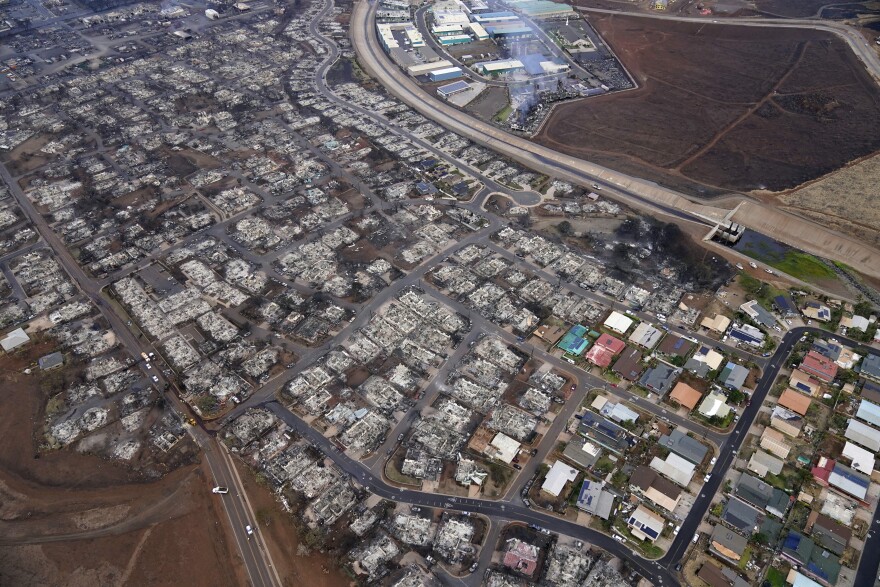Maui fire survivors are still experiencing high rates of physical and mental illnesses, along with food, housing and job insecurity.
Those are the initial findings from a recent University of Hawaiʻi Economic Research Organization survey of 224 people six months after being affected by the fires.
The survey, called the Maui Wildfire Exposure Study, or MauiWES, found that fewer than one-quarter of the survivors are in the homes they lived in before the August fires, and about two-thirds are in temporary homes.
Most of the survivors are experiencing reduced income, and about 24% are still jobless. The report found 58% lost their jobs because of the fires. More than one-third of those surveyed are experiencing food insecurity, up from 24% reported for Maui residents in a previous UHERO study that was published last summer.
A majority — about 74% — are experiencing poor respiratory health, and a similar percentage are at an increased risk for cardiovascular disease.
Survivors also have higher rates of depression and suicidal thoughts. The report, compared to the 2023 study, found that more than half the participants experienced a “depressive symptom” six months after the fire. That number was just over 30% for Maui residents before the fires.
About 1.3% of the participants said they had contemplated suicide, compared to 0.8% of Maui residents in 2023.

Many of the issues Maui fire survivors are experiencing are connected, UHERO researchers said.
“These things are intrinsically interlaced, so it's hard to separate them,” said Alika Maunakea, a John A. Burns School of Medicine professor.
He added, “This is an initial cross-sectional analysis of samples, so we can't really understand mechanistic links … right now. But this is another reason why we're hoping to continue this study moving forward.”
The report noted that there weren’t many resources available to those in need. About 60% of the study’s participants said they received no assistance after losing their jobs, and 24% said they had no access to regular medical care.
In general, the report said there is a need for more accessible services including increased capacity, financial assistance, better policies and more public campaigns.
The report discussed how many affected by the fires don’t trust the government on any level, or their services, compared to community organizations.
“People don’t trust FEMA, people don't trust the county services as much as they trust grassroots efforts and community organizations that are providing the services. But of course, these organizations have really tight budgets and limited services that they can provide,” said Ruben Juarez, a UHERO professor in health economics.
He added there were a lot of people who sought out services but couldn’t access them.
“We saw it on the ground. People would come to us — we would explain to them the results — and the first question is, ‘Where can I get treatment? Where can I get these services to follow up?’ And many of them just don’t have coverage, don’t have medical insurance, so definitely there’s this lack of access,” Juarez said.
UHERO is still looking for survey participants. It plans to follow Maui survivors for at least 10 years.
There will be additional recruitment events on Maui this month, including this weekend. More information can be found at MauiWES.info.






